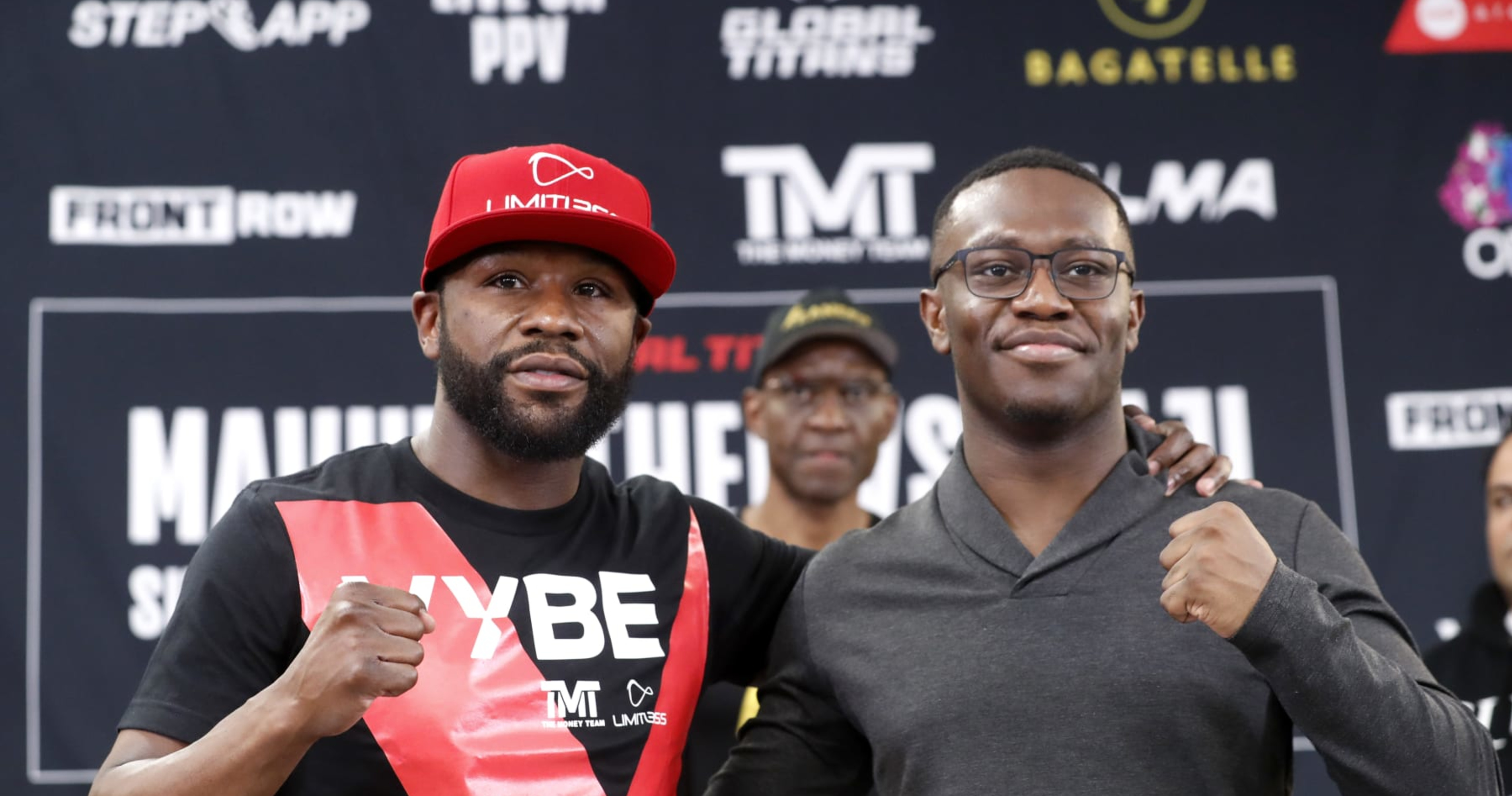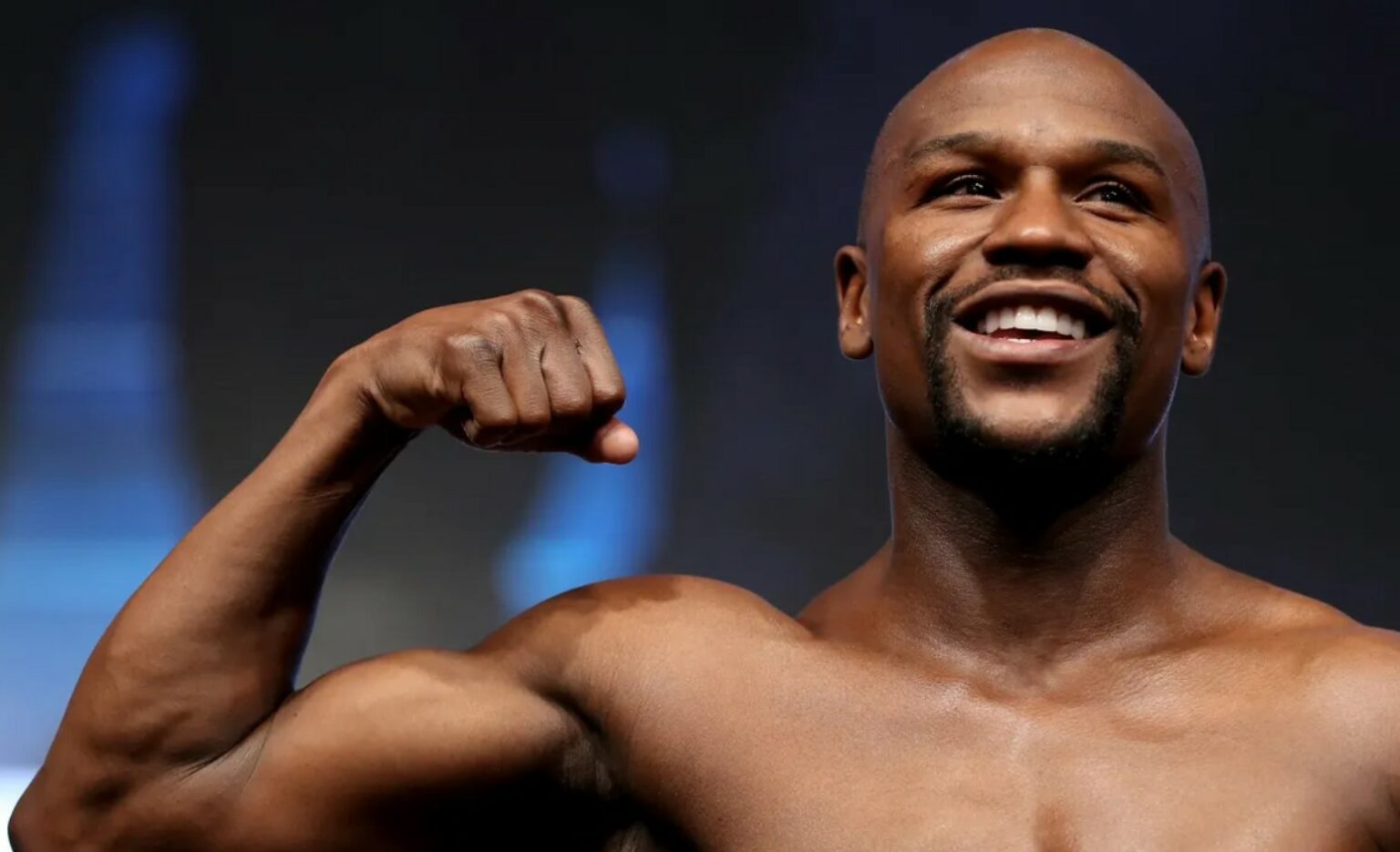Floyd Mayweather Vs CRISPR: The Ultimate Showdown Between Boxing Legend And Genetic Revolution
When you think about Floyd Mayweather, the first thing that comes to mind is his unparalleled boxing skills and undefeated record. But what happens when the world's greatest boxer faces off against CRISPR, the groundbreaking gene-editing technology reshaping the future of humanity? This article explores the fascinating intersection of sports, science, and innovation, examining how CRISPR could transform athletic performance and redefine the limits of human capability.
Floyd Mayweather, often regarded as one of the greatest boxers of all time, has achieved a level of success that few athletes can match. His journey from a young fighter in Grand Rapids, Michigan, to becoming a global icon is a testament to his dedication, discipline, and unmatched talent. But as technology continues to advance, the world of sports is on the brink of a revolution that could challenge even the greatest athletes.
CRISPR, short for Clustered Regularly Interspaced Short Palindromic Repeats, is a revolutionary gene-editing tool that allows scientists to make precise changes to DNA. This technology has the potential to enhance human performance in ways that were once thought impossible. As we delve deeper into this topic, we'll explore how CRISPR might influence the future of sports, ethics, and the legacy of legends like Floyd Mayweather.
Read also:Unveiling The Secrets Of Hsoda 052 A Comprehensive Guide
Table of Contents
- Biography of Floyd Mayweather
- Understanding CRISPR Technology
- Floyd Mayweather's Boxing Legacy
- Gene Editing and Athletic Performance
- Ethical Considerations in Sports
- The Future Impact of CRISPR on Sports
- Floyd Mayweather vs CRISPR: A Hypothetical Showdown
- Scientific Advancements in Human Enhancement
- Health Implications of Gene Editing
- Conclusion and Final Thoughts
Biography of Floyd Mayweather
Floyd Mayweather Jr., born on February 24, 1977, in Grand Rapids, Michigan, is a retired professional boxer and one of the most successful athletes in history. Known for his exceptional defensive skills and strategic approach to combat, Mayweather achieved an undefeated record of 50-0 over his 21-year career.
Below is a summary of his personal and professional details:
| Full Name | Floyd Joy Mayweather Jr. |
|---|---|
| Date of Birth | February 24, 1977 |
| Place of Birth | Grand Rapids, Michigan |
| Height | 5'8" (173 cm) |
| Weight Class | Lightweight to Middleweight |
| Record | 50-0 (27 knockouts) |
Early Life and Career
Floyd Mayweather grew up in a family deeply rooted in boxing. His father, Floyd Mayweather Sr., and uncle, Roger Mayweather, were both professional boxers who trained him from a young age. Mayweather's natural talent and rigorous training regimen quickly set him apart from his peers. By the age of 12, he had already won several amateur titles, laying the foundation for his future success.
Understanding CRISPR Technology
CRISPR technology represents a monumental leap forward in genetic engineering. This powerful tool allows scientists to edit DNA with unprecedented precision, opening up new possibilities in medicine, agriculture, and beyond. At its core, CRISPR uses a guide RNA to direct a protein called Cas9 to a specific location in the genome, where it makes a cut. This process enables researchers to add, remove, or modify genetic material.
According to a study published in the journal Nature, CRISPR has already been used to treat genetic disorders such as sickle cell anemia and muscular dystrophy. Its potential applications in enhancing human performance are equally exciting but raise significant ethical questions.
How CRISPR Works
- CRISPR identifies specific DNA sequences using guide RNA.
- Cas9 protein cuts the DNA at the target site.
- Cells repair the cut, allowing researchers to introduce desired genetic changes.
Floyd Mayweather's Boxing Legacy
Floyd Mayweather's legacy in boxing is unparalleled. His ability to dominate opponents through a combination of speed, precision, and strategy has earned him the nickname "Money." Throughout his career, Mayweather faced some of the toughest fighters in the sport, including Manny Pacquiao, Oscar De La Hoya, and Canelo Alvarez, defeating them all with remarkable consistency.
Read also:Jace Norman Height And Weight The Rising Star Of Hollywood
Mayweather's influence extends beyond the ring. He has become a global brand, leveraging his fame to build a business empire that includes gyms, promotions, and endorsements. His success serves as an inspiration to aspiring athletes worldwide.
Key Achievements
- Undefeated professional record of 50-0.
- World champion in five different weight classes.
- Recipient of numerous awards, including Fighter of the Decade for the 2000s.
Gene Editing and Athletic Performance
The intersection of gene editing and sports is a topic of growing interest. CRISPR technology could potentially enhance athletic performance by targeting genes associated with strength, endurance, and recovery. For example, editing the ACTN3 gene, often referred to as the "sprinter gene," could improve muscle function and speed.
However, the use of gene editing in sports raises complex ethical and regulatory issues. The World Anti-Doping Agency (WADA) has already classified gene doping as a prohibited practice, emphasizing the need for strict oversight in this rapidly evolving field.
Benefits and Risks of Gene Editing
- Benefits: Improved performance, faster recovery, reduced risk of injury.
- Risks: Unintended genetic mutations, ethical concerns, unequal access to technology.
Ethical Considerations in Sports
As CRISPR technology becomes more accessible, the ethical implications of its use in sports must be carefully examined. The principle of fairness is central to athletic competition, and any form of enhancement that provides an unfair advantage could undermine the integrity of the sport.
Moreover, the long-term effects of gene editing on human health are not yet fully understood. Scientists warn that altering genes could have unforeseen consequences, potentially leading to new health challenges or even genetic disorders.
Fairness in Sports
To maintain fairness, governing bodies like WADA must establish clear guidelines and enforcement mechanisms. Regular testing and monitoring will be essential to detect and prevent gene doping, ensuring that all athletes compete on a level playing field.
The Future Impact of CRISPR on Sports
The future of sports could look very different with the integration of CRISPR technology. Athletes may one day have the option to enhance their genetic profiles, pushing the boundaries of human performance to new heights. However, this future must be approached with caution, balancing innovation with ethical responsibility.
Education and public discourse will play a crucial role in shaping the future of gene editing in sports. By fostering a deeper understanding of the technology and its implications, we can work toward a future where science and sports coexist harmoniously.
Potential Applications of CRISPR in Sports
- Enhancing muscle strength and endurance.
- Accelerating recovery from injuries.
- Improving resistance to fatigue and stress.
Floyd Mayweather vs CRISPR: A Hypothetical Showdown
Imagine a world where Floyd Mayweather, the master of hand speed and defense, faces an opponent enhanced by CRISPR technology. Would Mayweather's unparalleled skill and experience be enough to overcome a genetically modified adversary? This hypothetical scenario raises fascinating questions about the limits of human potential and the role of technology in sports.
While CRISPR could provide an opponent with superior physical attributes, Mayweather's strategic mindset and ring intelligence might still give him the edge. The true test would be whether technology can replicate the mental and emotional aspects of combat, which are equally vital to success in boxing.
Scientific Advancements in Human Enhancement
CRISPR is just one example of the scientific advancements reshaping the landscape of human enhancement. Other technologies, such as wearable devices, artificial intelligence, and biometric tracking, are already being used to optimize athletic performance. Together, these innovations are creating a new era of sports where science plays a central role.
Researchers at institutions like MIT and Stanford are actively exploring the potential of CRISPR and other gene-editing tools. Their work is paving the way for breakthroughs that could revolutionize not only sports but also healthcare and beyond.
Key Research Institutions
- MIT: Pioneering studies on CRISPR applications in medicine and sports.
- Stanford: Developing advanced biometric tracking systems for athletes.
Health Implications of Gene Editing
While the potential benefits of CRISPR are vast, the health implications must not be overlooked. Editing genes can have unintended consequences, including off-target effects and genetic instability. Long-term studies are needed to fully understand the risks and benefits of this technology.
Scientists emphasize the importance of proceeding with caution and ensuring that gene-editing technologies are used responsibly. Regulatory frameworks must be established to safeguard public health and prevent misuse.
Long-Term Studies
Research institutions worldwide are conducting long-term studies to evaluate the safety and efficacy of CRISPR. These studies will provide valuable insights into the technology's potential applications and limitations, guiding its responsible use in the future.
Conclusion and Final Thoughts
Floyd Mayweather's legacy as a boxing legend is secure, but the rise of CRISPR technology challenges us to rethink the boundaries of human potential. As we explore the intersection of sports and science, it is essential to approach these advancements with a balanced perspective, weighing the benefits against the risks.
We invite you to join the conversation by leaving your thoughts in the comments section below. Share this article with your friends and family to spark a meaningful discussion about the future of sports and gene editing. Together, we can shape a future where science and sports coexist for the betterment of humanity.


